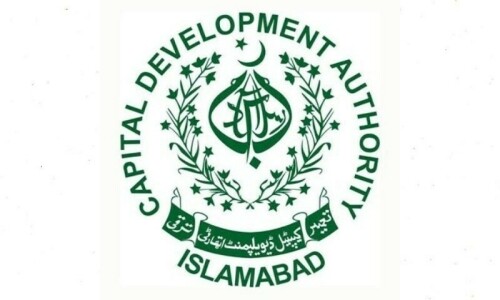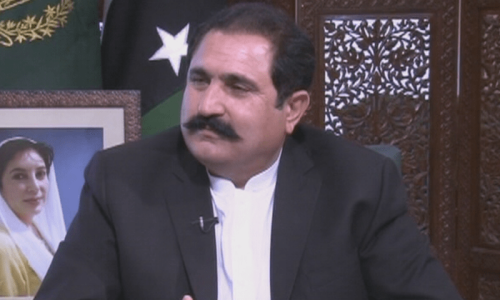ISLAMABAD: Child marriages are a common occurrence in Pakistan with around 18 percent of girls married before they turn 18.
This was highlighted by a speaker during an event organised in connection with International Women’s Day.
Around 11,000 mothers in Pakistan die due to complications arising out of pregnancy. The country is included among those with the highest maternal mortality rates.
Moreover, 9 million girls have no access to education and more girls (37 percent) are out of school in the country than boys (27pc). Similarly, only 25pc of young women are part of the labour force as compared to 96pc of men in the age group of 25–29.
Senior director (programmes) of the Population Council Dr Ali Mir said while talking to participants of the event, the theme of which was ‘Break the Bias’. It was organised by the Population Council with the support of the United Nations Population Fund (UNFPA). Journalists were informed about socio-cultural biases and how they affect the reproductive health rights of women and aggravate practices like child marriage.
In addition to this, 8 million women face gender-based violence in one year in Pakistan, Dr Mir said, adding, “Media can be an effective tool to break the biases against women and to promote family planning as a socially and religiously acceptable practice. It can provide information about how child marriage compromises women’s health, prosperity and empowerment.”
Researcher and social activist Fauzia Yazdani said Pakistan is a signatory of international conventions under which Pakistan is bound to stop underage marriages and protect the rights of children. However, she said, despite this 4pc of girls get married before they are 15 and 18pc before they are 18 years old. Poverty, food insecurity, health and economic expenditures of girls and lack of work opportunities in safe environments are the main drivers of child marriage, she said.
Project director at Population Council Samia Ali Shah said, “The theme of International Women’s Day (BreakTheBias) calls for ending social discrimination which badly affects women’s health, especially reproductive health.
“There is a need to empower women through education so that they can make informed decisions about their reproductive health. According to the Pakistan Demographic Health Survey (2018-19), only 10pc women can take decisions about their health in Pakistan.”
In his remarks, programme specialist of UNFPA Jamil Ahmed said, “Mortality rate during pregnancy and childbirth in Pakistan is highest in the entire region and there is a dire need to reduce it through advocacy, implementation of legislation and positive change in social behaviour.”
Published in Dawn, March 9th, 2022















































Dear visitor, the comments section is undergoing an overhaul and will return soon.